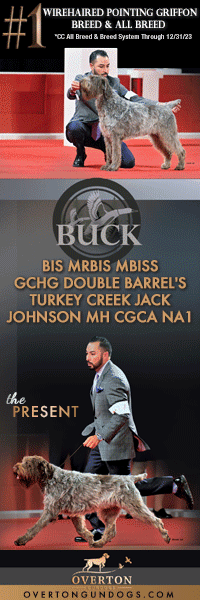Party’s or Parties?
Click here to read the complete article
— Nipped in the Bud – Not in the Butt —
“Party’s or Parties?”
What to do if you get Sued
By Debra Vey Voda-Hamilton, Esq./Mediator Hamilton Law and Mediation, PLLC
 Happiness is never getting sued. However, when people are in conflict over an animal, deciding to sue is an easy choice. Usually none of the parties feel heard; their issues have not been adequately addressed. Deciding to work within the relationship and appreciate another person’s point of view on the subject seems crazy.
Happiness is never getting sued. However, when people are in conflict over an animal, deciding to sue is an easy choice. Usually none of the parties feel heard; their issues have not been adequately addressed. Deciding to work within the relationship and appreciate another person’s point of view on the subject seems crazy.
The first two articles of this series addressed drafting and understanding a contract and identifying the language and communication you use to better describe the outcome you want. Now it’s time for the tough talk. None of the diligent drafting or language suggested has worked to avoid this disagreement. You and your breeder/co-owner/handler/client are at odds. Each of you believes that your opinion of the facts surrounding this disagreement is correct.
There are two ways to approach this impasse. One option is to hire an attorney versed in the art of litigation and strong-arm tactics and sue. It will cost a significant amount of money to bring a lawsuit. You and your attorney must be fully committed to the win/lose paradigm. Courts are reluctant to take on cases involving disputes civil or contractual about animals. For that matter, the AKC is not keen on becoming embroiled in litigation. Litigation of conflicts over registrations stand firmly outside the purview of the AKC. The AKC will often suggest litigation as a means of resolving matters involving disputes in ownership or registration. It is not that the AKC doesn’t care, it’s not their fight to have. They don’t know the facts. They don’t hold themselves out as the arbiter of facts. Rather, they prefer parties settle the issue elsewhere and then come back and see them. Local courts would like to tell you to do the same but they are the place in which people bring lawsuits. In court, petitioners believe they will get a fair hearing and a supportive decision in their favor. Maybe, maybe not.
In the case of a divorce, recent cases have struggled with the issue of custody of the beloved dog. NY courts have rendered decisions firmly upholding the status of dogs as property. They have not rendered decisions following the best interests of the pet because that standard is reserved for children and humans, not non-human family members. In the 2013 case, Tracy vs. Murray, 2013 NY Slip Op 23405[42 Misc. 3d 447] Justice Matthew Cooper evaluated the divorcing spouses’ disagreement under a “the best for all concerned,” standard. In a later NY case, Gellenbeck vs. Whitton, 2015 NY Slip Op 30289(U) Justice Arthur F. Engoron threw out the ‘best for all concerned’ standard as not applicable. He told the parties to decide who gets the property (their beloved dog) or he would sell the dog, which is within his power to do, and split the proceeds. When interviewed by a NY newspaper, the judge said it was the most difficult decision he had ever had to make.
Since courts are divided on how to decide these domestic disagreements over the dog/cat/bird, imagine how divided they are over pure commercial transactions (i.e., the sale of a dog, co-ownership rights/responsibilities/terminology and responsibilities under contract law). Your adversary and the court look for any reason to avoid taking on the case. Addressing the meat of the disagreement may never be reached if a contract is found unenforceable for any of a number of technical reasons. Even though an argument can be made that all the parties knew what was meant by the terms of a contract, they may never get there if the contract is found unenforceable. No one’s story will be told nor explanation of meaning heard due to a glitch that throws the contract out the courthouse window.
If you could, would you like to avoid going to court even if you are sued? Would you like to address the terms of the contract you entered into for clarity? How would it feel if all the parties defined the language used within the contract? If misunderstandings could be corrected or appreciated, would you chose that process? If this sounds like something you would rather do than engage in an expensive court fight and a possible invalidation of the contract then mediation is a first step for you.
Mediation is the venue through which parties can get what they want. They decide if what they want is enough and agreeable. If not, the mediation can be shut down and lawsuits ensue. Mediation reality tests the parties’ wants and desires against the wants and desires of the other side. Each gains a better understanding of what is really important and what is not.
When you get sued, the process you choose after one-on-one communication breaks down is mediation. Often, how the parties choose to proceed dictates whether the outcome is a win/lose or win/win. Win/win seems in the best interest of the animals involved. If everyone’s ego gets involved, it can spell disaster for the pet.
The ‘If ego rule’ – read below…
Recalling from the prior two articles, mediation allows the parties to engage in confidential conversation with or without their attorney. All parties must agree to participate. If one party has an attorney, the other will need to get one since neutrality and fairness rules in mediation. In mediation, attorneys are present but the mediator is in charge. The mediator facilitates the parties’ conversation, which had been hampered by the communication break down.
If the mediator is familiar with a conflict like yours, involving a breakdown of communication over a show dog, they will know they need to allow for each party’s story to be told and heard. In that one process most disagreements can be resolved, sans litigation. We are often unable to fully listen to the story of our adversary due to our planning on the retort we needed to make in response to their story. We haven’t heard the other side. Now we get that second chance to speak and be heard.
There are the 3 steps you should take if you get sued:
1. Read the summons and complaint or attorney advisement letter thoroughly. See exactly what underlies the claim and when you must respond with your answer. Do not allow a default judgment to be filed against you because you ignored a due date.
2. Find an attorney who is mediation aware and friendly. Attorneys who review divorce mediation can be the first place to start. They already know the process and are friendly to party self-determination. These mediation friendly litigators will help you weigh the pros and cons of engaging in litigation or starting with mediation.
3. Do your homework. Find a local community-based mediation program that accepts private actions (they are usually free or low fee and give you two hours or more to work out your differences).
A side-benefit of opting in to mediate first is that the court may likely look favorably on your process choices. The court may assist you in encouraging the other side to participate in mediation. Mediation is a voluntary process not favored by litigious attorneys or clients. However, courts are examining the benefits of requiring mandatory mediation in cases like this. Ask for and opt into mediation first. It may make the process less costly and onerous for all and find the path of least resistance toward resolution.
Short URL: http://caninechronicle.com/?p=102125
Comments are closed











